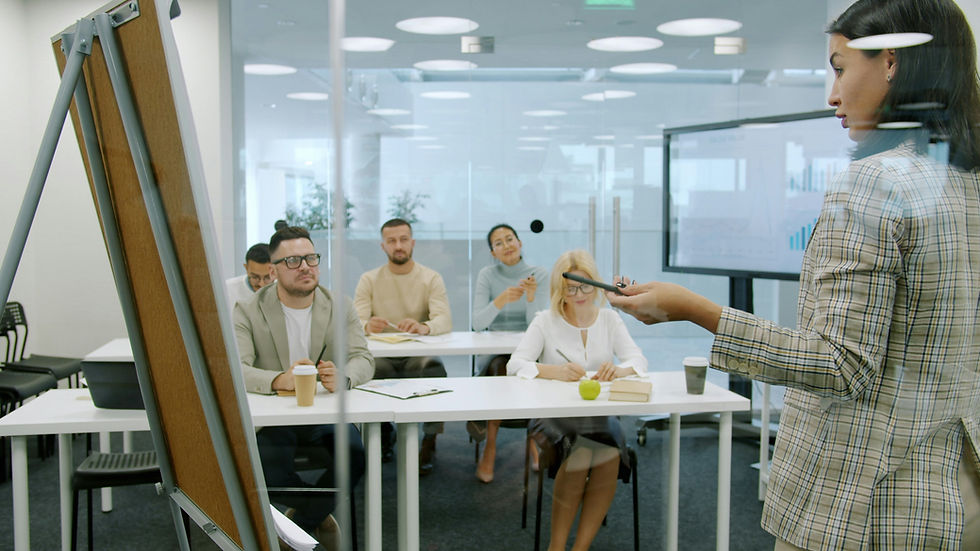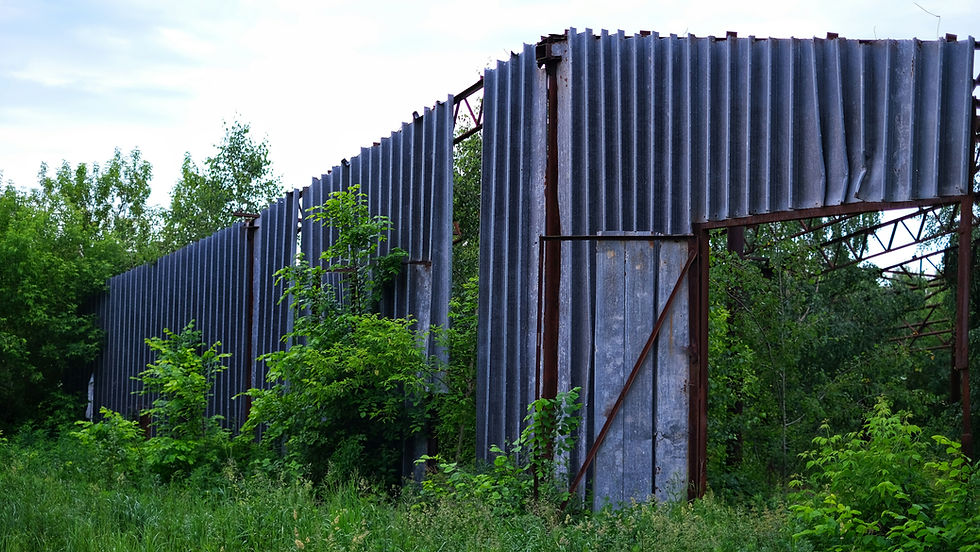Q&A: The Beauty of Balancing Sustainability and Profit
- Daisy Moll

- Sep 30, 2025
- 5 min read
Colette Laxton, co-founder of The Inkey List, joined Sustainable Times for a Q&A to discuss how the brand is driving sustainability in the beauty industry. As an ambassador for Breakout Beauty UK, she is also supporting the next generation of beauty entrepreneurs.

Laxton launched The Inkey List with Mark Curry in 2018, on the belief that better knowledge powers better decisions. Their mission is to make skincare simple, accessible, and less confusing. As a certified B Corp, the brand prioritises people and the planet, embedding sustainability at every level from 74% recyclable packaging and renewable energy use to ensuring supply chain partners align with climate action and the UN Sustainable Development Goals. Each year, they measure and share their environmental footprint and their Impact Fund empowers young changemakers to create positive social change.
Laxton has been announced as an ambassador for Breakout Beauty UK, a transformative accelerator programme supporting high-potential UK beauty founders ready to scale globally. The programme has also attracted headline partnerships from Boots, TikTok Shop, FDD International, the UK’s leading beauty distributor, the support of the British Beauty Council and early stage venture capital firm Venrex.
Paul Finch, co-founder of Growth Studio and programme architect, explains the UK is buoyant with unrealised beauty talent.
“With a growing market value of £30bn, the beauty business is one of the most dynamic sectors in the UK, yet so many incredible founders face barriers to entry and scale. Breakout Beauty UK is about unlocking that potential, giving beauty entrepreneurs the tools, network, and capital they need to succeed”.
Q&A with Colette Laxton
As an ambassador for Breakout Beauty UK why is it so important for you to support the next generation of beauty entrepreneurs?
For me, supporting the next generation of entrepreneurs is both a responsibility and a privilege. When we launched the INKEY List, we benefited from mentors who gave their time generously to share insights, so it feels only right to pay that forward. This is something we apply through beauty and beyond. For example through our Inkey Impact Fund and our work in breaking down barriers in education. The beauty industry is dynamic, but it can also be overwhelming and sometimes exclusive. By offering guidance, demystifying the process, and sharing both successes and failures, I hope to help open doors for those coming through. Fresh perspectives and new ideas are what keep our industry alive - supporting young founders is an investment in the future of beauty.
What does it mean for a beauty brand to become a B Corp and was it hard to achieve?
We certified B Corp on 17 January 2023 but we started in 2021 and it took nearly two years of work. Becoming a B Corp means holding ourselves accountable to the highest standards of social and environmental performance, transparency, and governance. It isn’t a badge you simply apply for - it’s a rigorous assessment that forces you to scrutinise every part of your business, from how you treat your team to how you source raw materials. Was it hard? Absolutely. It’s a long, sometimes challenging process that makes you face uncomfortable truths. But it’s also hugely rewarding. For us, achieving B Corp status is a milestone that proves our values are more than just words - we’re building a business that balances profit with purpose.
How do you expect sustainability to feature in the future of the beauty industry?
As hard as it is to hear for brands who are facing rising costs, I think sustainability will stop being a ‘nice to have’ and become non-negotiable. Consumers are demanding it, regulators are tightening up, and frankly, the planet needs it. I hope brands will build sustainability into every decision, for example packaging designed for real-world recycling (simpler, mono-material, higher post-consumer recycled, compostables) and more innovation around ingredients with lower environmental footprints. The brands that thrive will be those who integrate sustainability, rather than treating it as an add-on.
What are the main barriers in the beauty industry to it becoming more sustainable?
One of the biggest barriers is complexity and cost. Beauty supply chains are global and fragmented, which makes traceability and accountability challenging. Cost is a huge barrier - sustainable options in packaging or ingredients often come with an upfront premium, and not every business can absorb that. Finally, there’s the issue of consumer behaviour: we can create the most sustainable packaging in the world, but if it isn’t disposed of properly, the impact is lost. We need to be thinking about simplicity, transparency and standardisation. Education and accessibility play a huge role in overcoming these barriers.
What are the business-level challenges you face in trying to be more sustainable?
Balancing sustainability with affordability is one of our biggest challenges. Our mission is to democratise knowledge and make great skincare accessible. That means we have to be very mindful that sustainability doesn’t push us into price points that exclude people. There are also logistical hurdles - working with multiple suppliers, each at a different stage of their own sustainability journey, can be frustrating. But we’ve learned that progress is more important than perfection.
Are there any innovations in packaging, ingredients, or supply chains that you’re particularly excited about?
I’m really excited about making packaging simpler, using mono-material designs with higher PCR and less overall material, so they actually move through real-world recycling. We’re also improving components so they’re easier to take apart and sort, and making disposal guidance crystal-clear for consumers. There’s also amazing work happening in new packaging materials that can be compostable in your back garden. For ingredients I'm fascinated by lab-grown and biotech ingredients — finding ways to replicate nature without depleting it. In supply chains, digital traceability tools are game-changers that can give us better visibility from raw material to finished product. These innovations give me hope that sustainability can scale at speed and become more accessible.
Since beauty is a global industry, how do regional differences in regulation, consumer demand, or cultural expectations affect your approach to sustainability?
They play a huge role. For example, European regulations are often ahead of the curve on ingredient safety and sustainability, while consumer demand in markets like Asia can be incredibly innovative when it comes to packaging expectations. In the US, transparency and clean formulations are particularly strong drivers. These differences mean we have to stay agile and ensure our strategy isn’t ‘one size fits all’ - meeting consumers where they are, while always pushing for higher standards across the board.
Where would you like The Inkey List to be in 10 years in terms of its sustainability achievements?
In 10 years, I want the INKEY List to be recognised not just as an affordable, knowledge-driven skincare brand, but a brand that continually evolves and holds itself to a high standard of sustainability. I’d love for us to have helped democratise new industry standards, proving that sustainability and accessibility can go hand in hand. Ultimately, I want us to be part of the reason the beauty industry is seen as a force for good.





![LOGOTYPE [GREEN_DARK GREEN].png](https://static.wixstatic.com/media/d6e0b6_7c15be730f2c42d4ad22da5f1e69fa35~mv2.png/v1/fill/w_877,h_198,al_c,q_85,usm_0.66_1.00_0.01,enc_avif,quality_auto/LOGOTYPE%20%5BGREEN_DARK%20GREEN%5D.png)



Each slope rider level showcases unique neon architectures—spirals, bridges, and floating platforms—that transform a simple downhill run into a surreal, glowing odyssey.
It’s a bite-sized, intense taste of what makes Geometry Dash special—ideal for both casual rhythm gamers and hardcore platforming enthusiasts looking for their next pulse-racing challenge.